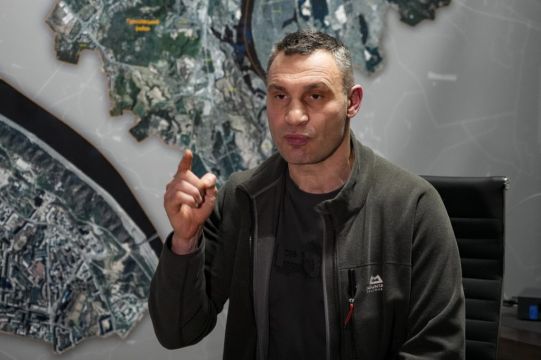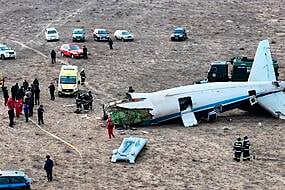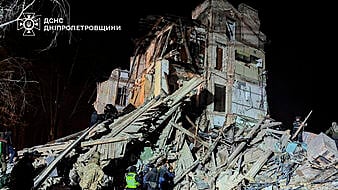As Russian troops draw closer to the Ukrainian capital, Kyiv’s mayor is both filled with pride over his citizens’ spirit and anxious about how long they can hold out.
In an interview with the Associated Press (AP) on Sunday, after a gruelling night of Russian attacks on the outskirts of the city, mayor Vitali Klitschko was silent for several seconds when asked if there were plans to evacuate civilians if Russian troops managed to take Kyiv.
“We can’t do that, because all ways are blocked,” he finally said.
“Right now we are encircled.”

When Russian troops invaded Ukraine on Thursday, the city of 2.8 million people initially reacted with concern but also a measure of self-possession.
However, nerves started fraying when grocery stores began closing and the city’s famously deep subway system turned its stations into bomb shelters.
The mayor confirmed to the AP that nine civilians in Kyiv had been killed so far, including one child.
A Klitschko-ordered curfew began at about sundown on Saturday and is to extend until at least 8am on Monday.
His order pointedly stated that any unauthorised person outside could be considered a saboteur.
“We are hunting these people, and it will be much easier if nobody is on the street,” Mr Klitschko explained, saying that six Russian “saboteurs” were killed on Saturday night.
Russian troops’ advance on the city has been slower than many military experts had expected.

“I just talked to the president (Volodymyr Zelensky). Everybody is not feeling so well,” Mr Klitschko said, adding that the Ukrainian city government employees were in shock but not depressed.
“We show our character, our knowledge, our values.”
In the last few days, long queues of people – both men and women – were spotted waiting to pick up weapons throughout the capital, after authorities decided to distribute weapons freely to anybody ready to defend the city.
There are concerns, however, about arming nervous civilians with little military experience amid warnings of Russian saboteurs disguised as Ukrainian police or journalists.
“To be honest, we don’t have 100% control,” said Mr Klitschko.
“We built this territorial defence in a short amount of time – but these are patriotic people.”
He added: “Right now, the most important question is to defend our country.”
Responding to a question about the city’s capacity to replenish dwindling stocks of food and medicine, Mr Klitscho’s view darkened, however.
“We are at the border of a humanitarian catastrophe,” he said.
“Right now, we have electricity, right now we have water and heating in our houses. But the infrastructure is destroyed to deliver the food and medication.”
Then, in the same breath, he rallied like the world heavyweight boxing champion he once was.
“That’s why the message for everyone is: Support Ukraine together … We are strong,” he said.
“Every Ukrainian is proud to be independent, proud to be Ukrainian, and we are proud to have our own country.”







